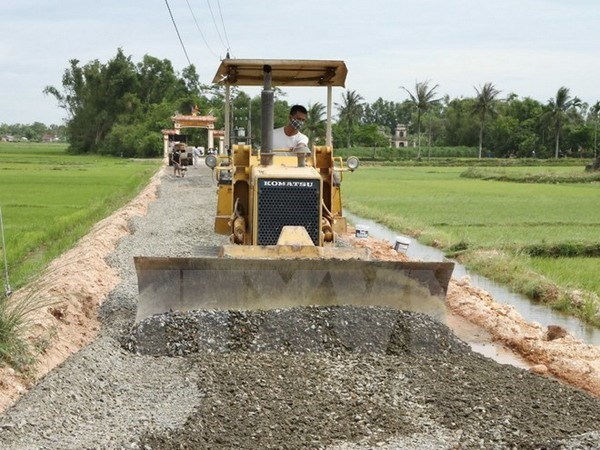
More than 2.8 billion USD) was mobilised from enterprises and individuals for social welfare activities, new rural development and building of essential infrastructure facilities in disadvantaged localities (Source: VNA)
About 36.5 trillion VND (nearly 1.6 billion USD) sourced from localities’ budget was allocated for the scheme, with 33.8 trillion VND (nearly 1.48 billion USD) for the national target programme on new rural development and over 2.6 trillion VND (113.6 million USD) to promote sustainable poverty reduction.
The bank sector invested in communes across the country, contributing to realising targets related to new rural development.
Banks also provided low-interest loans to poor and near-poor households, those newly escaped from poverty and other policy beneficiaries, aiming to foster sustainable poverty reduction and ensure social welfare.
Notably, the Vietnam Bank for Social Policies disbursed 55.1 trillion VND (2.4 billion USD) in the year, contributing to accelerating the implementation of criteria on new-style rural area building.
By the end of 2017, the outstanding loan balance of credit institutions in communes nationwide reached 871 trillion VND (38 billion USD), up 20.02 percent against the end of 2016.
Besides sources from the State budget and support from credit institutions, national target programmes also received resources from Vietnam’s development partners, businesses and individuals.
More than 64.2 trillion VND (2.8 billion USD) was mobilised from enterprises and individuals for social welfare activities, new rural development and building of essential infrastructure facilities in disadvantaged localities.
Several donors pledged to provide over 3.646 trillion VND in official development assistance (ODA) for the country’s national target programmes in 2016-2020, including 153 million USD from the World Bank, and 12 million USD from the Irish government.
According to the Ministry of Planning and Investment, the disbursement rate for national target programmes in 2017 was estimated at 74.6 percent, with those in the northern provinces of Bac Kan, Lai Chau, Hai Duong and Nam Dinh, the central provinces of Ha Tinh and Quang Nam and Mekong Delta Tien Giang province reaching 100 percent.
VNA
 ASEAN, China strengthen joint efforts to combat cross-border cybercrime
ASEAN, China strengthen joint efforts to combat cross-border cybercrime



